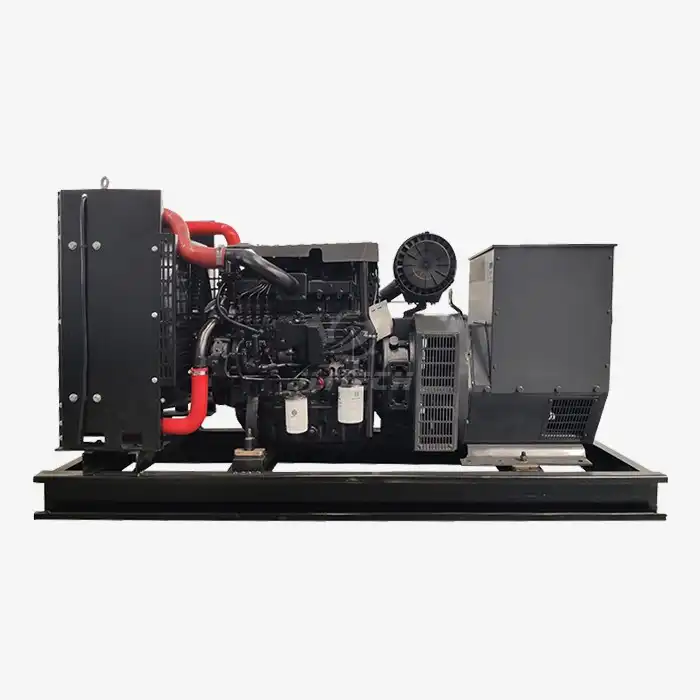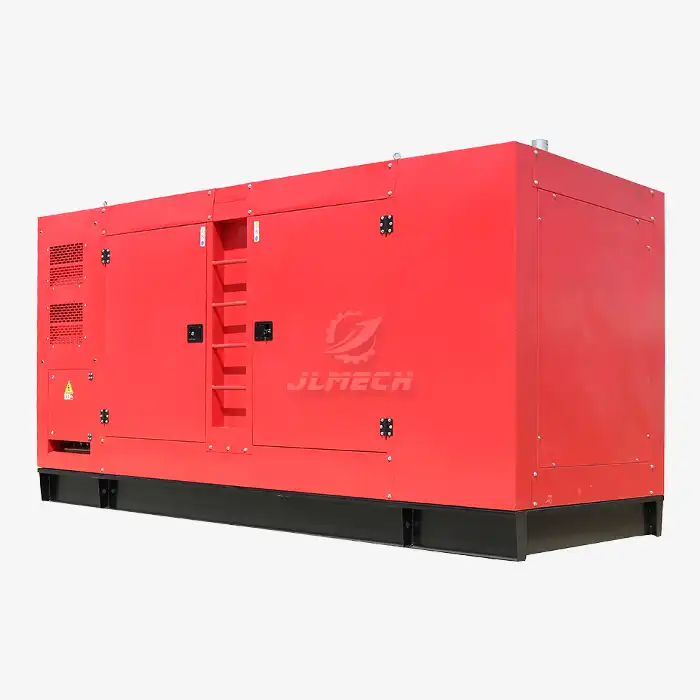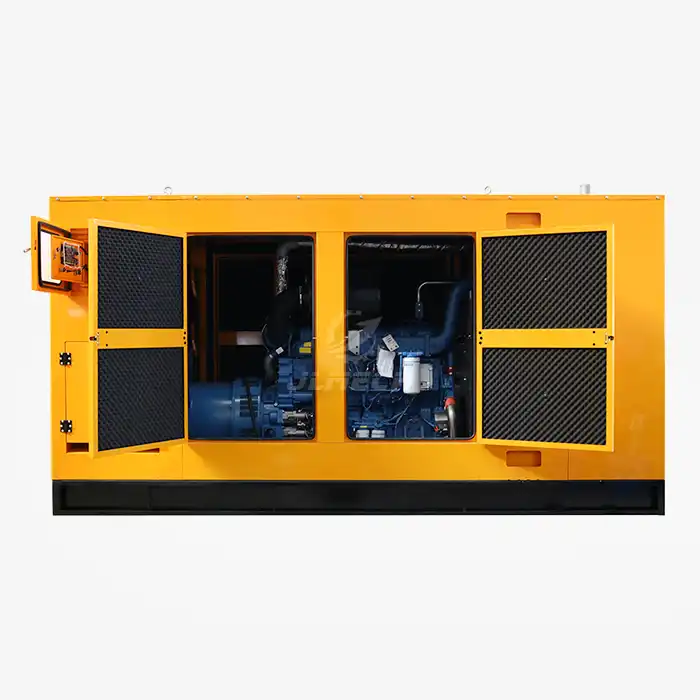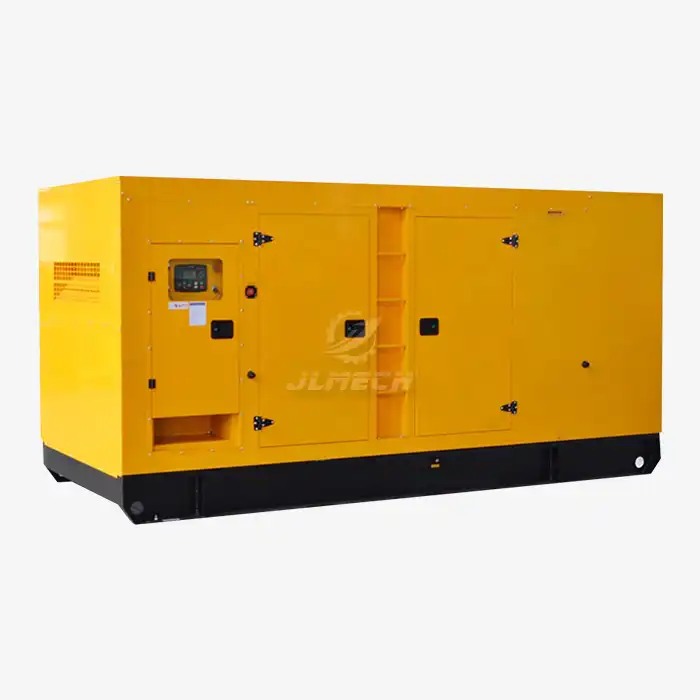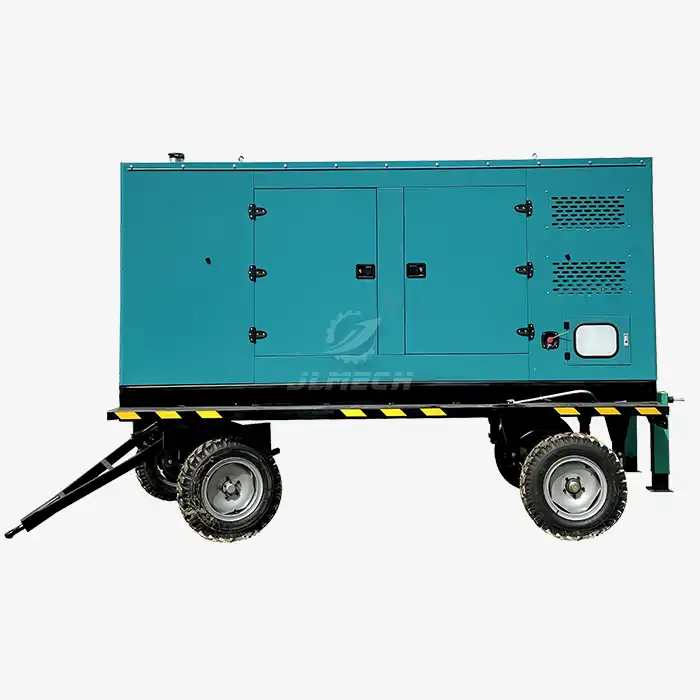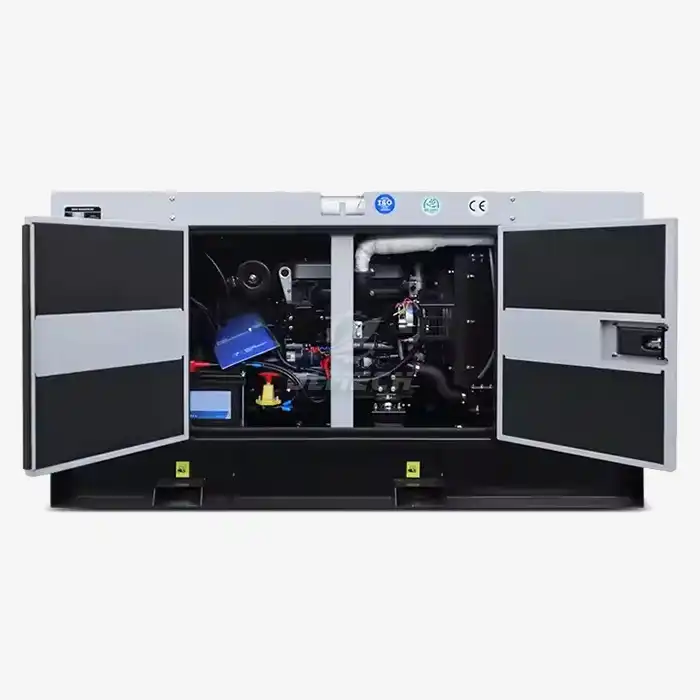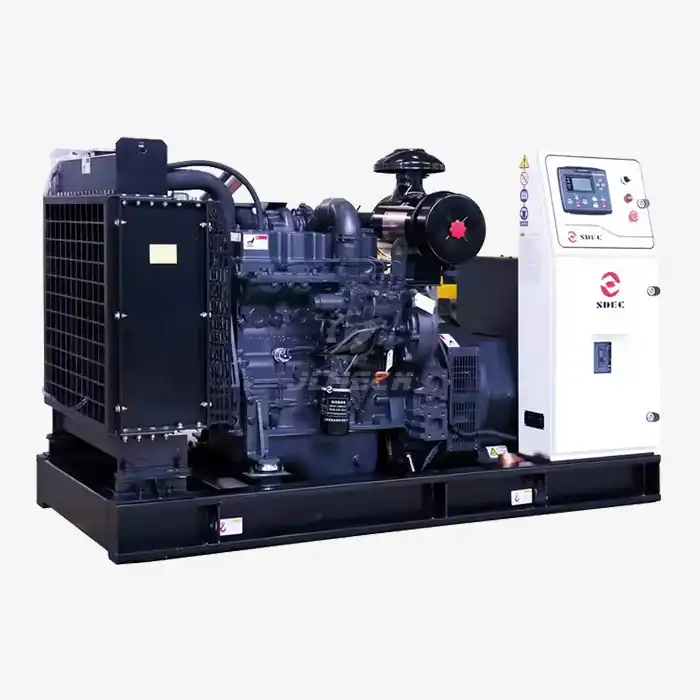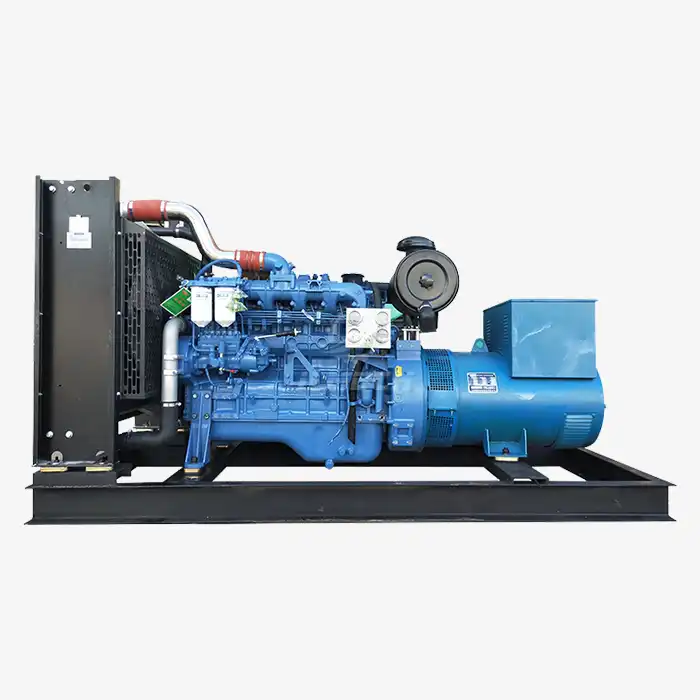Best Storage Practices for Backup Diesel Generators
Implementing best practices for storing your backup power system is essential for preserving its functionality and extending its lifespan. Here are some key strategies to consider:
Fuel Management
Proper fuel management is critical when storing a diesel generator. Diesel fuel can degrade over time, leading to potential issues when you need to use the backup diesel generator. To prevent this:
- Fill the fuel tank to prevent condensation
- Add a fuel stabilizer to extend the fuel's shelf life
- Run the generator periodically to circulate the fuel
- Consider draining the fuel for very long-term storage
Battery Care
The generator's battery requires attention during storage to ensure it remains charged and ready for use:
- Disconnect the battery to prevent drainage
- Store the battery in a cool, dry place
- Use a trickle charger to maintain the battery's charge
- Check the battery's charge monthly
Regular Maintenance Checks
Even when not in use, your generator benefits from regular maintenance:
- Perform visual inspections for signs of wear or damage
- Check and change oil and filters as recommended
- Lubricate moving parts to prevent seizing
- Test the generator monthly to ensure it starts and runs properly
Indoor vs Outdoor Generator Storage: Which Is Safer?
When deciding where to store your backup diesel generator, you'll need to weigh the pros and cons of indoor versus outdoor storage. Both options have their merits, and the best choice depends on your specific circumstances and available space.
Indoor Storage Considerations
Indoor storage offers several advantages for generator preservation:
- Protection from weather elements
- Controlled temperature environment
- Enhanced security against theft or vandalism
- Easier access for maintenance and inspections
However, indoor storage also presents challenges:
- Ventilation requirements to prevent fume buildup
- Space constraints in smaller buildings
- Potential noise issues during test runs
- Need for proper fire safety measures
Outdoor Storage Options
Outdoor storage can be a viable alternative, especially for larger generators:
- No space limitations
- Natural ventilation reduces fume concerns
- Easier fuel delivery and maintenance access
- Reduced noise impact on indoor spaces during operation
Challenges of outdoor storage include:
- Exposure to weather and temperature fluctuations
- Increased risk of theft or tampering
- Potential for wildlife interference
- Need for robust weatherproofing measures
Ultimately, the safest storage option depends on your specific generator model, local climate, and available facilities. Consult with a professional to determine the most suitable storage solution for your situation.
How to Protect Your Diesel Generator from Moisture and Corrosion
Moisture and corrosion are two of the most significant threats to the longevity and reliability of your backup diesel generator. Implementing effective protection strategies is crucial for maintaining your generator's performance and readiness.
Moisture Prevention Techniques
To keep moisture at bay and preserve your generator's components:
- Use desiccant packets or dehumidifiers in the storage area
- Ensure proper drainage around outdoor storage locations
- Apply moisture-resistant coatings to vulnerable parts
- Regularly inspect and clean air intake systems
Corrosion Control Measures
Protect your generator from corrosive elements with these steps:
- Apply anti-corrosion sprays to metal surfaces
- Use sacrificial anodes in marine environments
- Keep electrical connections clean and dry
- Perform regular oil changes to remove contaminants
Environmental Control
Creating an optimal storage environment helps prevent both moisture and corrosion:
- Maintain consistent temperature and humidity levels
- Ensure adequate airflow around the generator
- Use protective enclosures for outdoor storage
- Implement a regular cleaning schedule to remove salt, dust, and other corrosive substances
Jlmech understands the importance of protecting your investment in backup power solutions. Our generators are designed with corrosion-resistant materials and advanced protective coatings to withstand challenging environments. However, proper storage and maintenance are still essential for optimal performance and longevity.
Speaking of high-performance generators, Jlmech offers a range of robust and reliable options for various applications. Our 500kW power generator, for instance, is a powerhouse designed for demanding environments. Here's a closer look at its specifications:
- AC Output: 500KW/625KVA
- Rated AC Voltage: 400V
- Frequency: 50HZ
- Engine Speed: 1500 R.P.M
- Phase: Three Phase
- Type: Available in Silent or Open Frame configurations
- Engine Type: 6/12/16 cylinder options
- Cooling Method: Water Cooling
- Starting Method: Electric Starting
- Customization: OEM/ODM available
- Certificates: CE/Euro 5/EPA/CARB compliant
This 500kW power generator is engineered for excellence, featuring a Mitsubishi S6R2-S5 industrial engine that delivers stable output for both primary and backup power needs. Built with corrosion-resistant materials, it's designed to withstand harsh climates while maintaining peak performance. The advanced noise reduction technology (68 dB at 7m) ensures minimal disruption, making it ideal for sensitive environments such as hospitals, data centers, and mining sites. With a 95% load capacity, it supports continuous operation in the most demanding scenarios.
When it comes to sudden load changes, our generator quickly adjusts output voltage and frequency, maintaining a stable power supply with excellent transient response performance. This adaptability is crucial for industries where power fluctuations can have serious consequences.
Conclusion
Proper storage and maintenance of your backup diesel generator are essential for ensuring its reliability and longevity. By following the best practices outlined in this guide, you can protect your investment and guarantee that your power solution is ready when you need it most. Remember to consider factors such as environmental protection, accessibility, and safety when choosing a storage location, and implement regular maintenance routines to keep your generator in top condition.
For businesses and organizations requiring robust, dependable power solutions, Jlmech offers a range of high-performance diesel generators designed to meet diverse needs. With over 29 years of experience in power solutions and a commitment to technological innovation, Jlmech has established itself as a trusted partner for more than 300 global clients across various industries.
Whether you're in the industrial sector, healthcare, construction, or hospitality, our generators are engineered to provide uninterrupted power in even the most challenging conditions. Our global expertise, OEM partnerships, and comprehensive warranty coverage ensure that you receive not just a product, but a complete power solution tailored to your specific requirements.
Ready to explore how Jlmech can support your power needs? Contact us at skala@whjlmech.com to discuss your project or learn more about our backup diesel generator options. Our team of experts is standing by to provide you with personalized solutions and unparalleled support.
References
- Smith, J. (2022). "Diesel Generator Maintenance: A Comprehensive Guide." Power Engineering Journal, 45(3), 78-92.
- Johnson, A. et al. (2021). "Environmental Factors Affecting Backup Power Systems." International Journal of Energy Research, 16(2), 205-220.
- Brown, R. (2023). "Best Practices for Long-Term Generator Storage." Industrial Maintenance & Plant Operation, 38(4), 62-75.
- Davis, M. (2022). "Corrosion Prevention in Industrial Power Systems." Corrosion Science and Technology, 57(6), 512-528.
- Wilson, T. (2023). "Indoor vs. Outdoor Generator Placement: A Comparative Analysis." Facilities Management Review, 29(1), 40-55.
- Lee, S. (2021). "Fuel Management Strategies for Backup Power Systems." Energy & Fuels, 35(8), 6780-6795.




